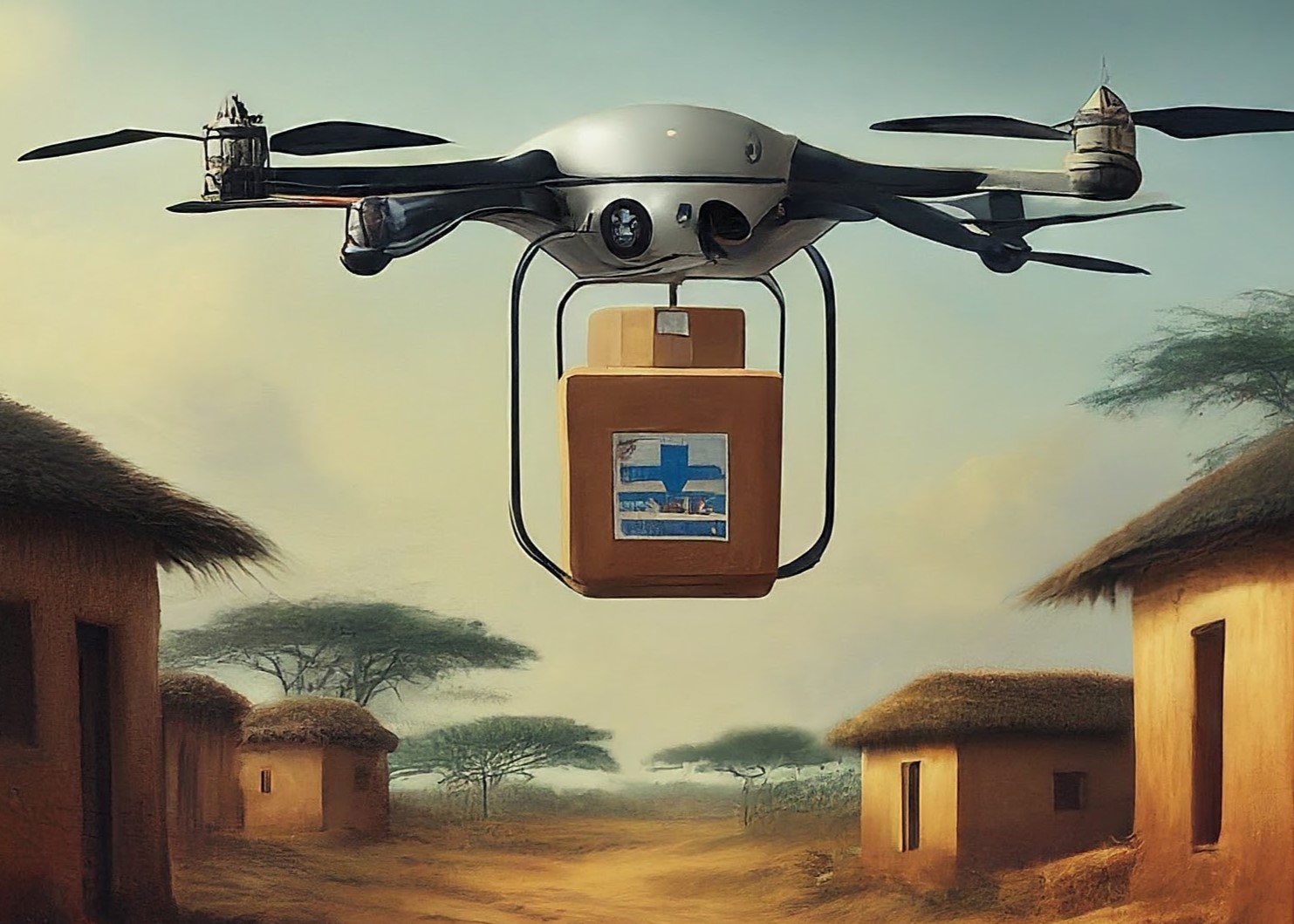People 'n' Issues
Medical drone deliveries
take off in Africa
South Africa’s small drone market is experiencing rapid growth and is expected to reach R2.4-billion by 2025.
Drones, or Unmanned Aerial Vehicles (UAVs) as they are formally known, have expanded dramatically beyond surveillance, especially across the African continent.
Both commercial and non-commercial purposes are becoming increasingly recognised across the continent, especially in medical supply delivery.
Kopano Tholo, drone expert at ITOO Special Risks, says that drones are proving to be an efficient method of providing logistical services and delivering supplies in remote rural areas where road infrastructure is poor.
“Drones became the turnkey solution for various problems, such as lack of resources and infrastructure, in several African countries, especially during the COVID-19 pandemic. Countries like Rwanda and Ghana used drones very effectively to deliver vaccines and medical samples to areas that were inaccessible by road,” he says.
The South African National Blood Service (SANBS) launched Project BloodWing in 2019, intending to deliver blood to people in remote areas of KwaZulu-Natal and the Eastern Cape. Other countries adopted this approach: Rwanda became the first African country to regulate the use of UAVs for pharmaceutical deliveries after the pandemic, followed by Ghana.

Kopano Tholo, drone expert at ITOO Special Risks
“In those countries, the use of drones now goes over and above just the delivery of vaccines and blood samples,” says Tholo. “Drones are now used as a just-in-time delivery service for any medical supplies which is needed to reach rural areas.
“Surprisingly enough, South Africa has still not regulated the use of drones for delivery services, but I believe that, with all the test cases that are being done with the South African Civil Aviation Authority and some of the service providers, we will eventually see a regulated service.”
Tholo says that safety concerns are at the heart of South Africa’s slow adoption of these regulations, as the country does not currently have any unmanned traffic management (UTM) control systems in place. Ultimately, UTMs would have to be established in locations where drones are being operated to safeguard those areas.
Despite the lack of drone delivery service regulations in South Africa, the country remains the biggest drone market in Africa. Drones are currently employed in the energy and mining industries, as well as sectors like security and agriculture.
Research firm Industry ARC reveals that South Africa’s small drone market is experiencing rapid growth and is expected to reach R2.4-billion by 2025, growing at a compound annual growth rate of 22.35% from 2020 to 2025. According to Statista, revenue in the drone market in the rest of Africa will amount to R843-million in 2024, with a projected compound annual growth rate of 5.01% between 2024 and 2028.
Considering this robust rate of growth, the drone insurance market is also likely to see significant expansion as more drone operators enter the market, especially in the delivery and logistics space in the African region.
“Insurers that offer drone insurance products will typically insure the physical drone and its components, but not the package that it is delivering. A drone insurance product will also typically cover the liability portion related to operating a drone, including any damage to property or injuries to people that might be caused by the drone.
“The regulations in all of these African countries require operators to have liability cover in place to be able to operate a drone for commercial purposes in their respective airspace, including South Africa.”
At the same time, to qualify for insurance, Tholo points out, drone operators must have a Remotely Piloted Aviation Systems (RPAS) certificate and the drone must be registered with the local civil aviation authority of the country in which it is being operated. Drone laws and regulations in South Africa are closely based on existing aviation law, but RPAS – or drones – are separated into commercial and hobby operations.
“Currently, one of the biggest risks that we see related to this industry is from a liability perspective in that many people do not understand the dangers of operating a drone without adequate liability limits. Similarly, there is also a risk in terms of people who operate drones without understanding the regulations and the laws that govern their operations. But I’m sure this will change as the market continues to mature.”


















